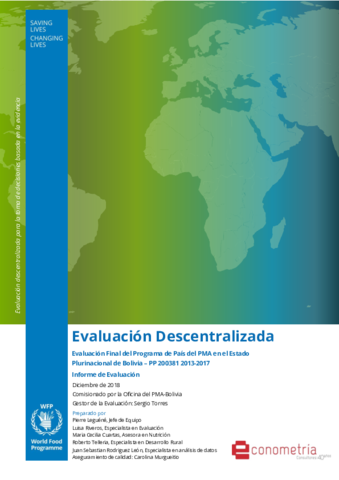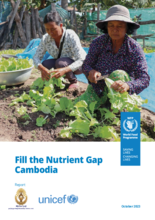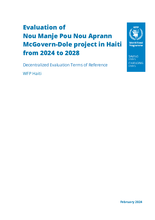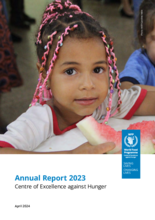
The evaluation was commissioned to inform the implementation of the Country Strategic Plan and was framed by the following evaluation questions: Was the Country Programme consistent with the national development related-objectives? Were the results satisfactorily and efficiently achieved? What were the factors influencing the objectives (drivers and obstacles), and to what extent and how did they operate? Criteria on relevance, coherence, effectiveness, efficiency, coverage, sustainability were used as a reference to assess those questions.
The evaluation covered the following components: a) School Feeding; b) Nutrition; and c) Livelihood development and disaster risk reduction.
Key evaluation findings included:
- The programme has contributed to improve the school feeding service and nutrition practices, having a greater potential for capitalization and advocacy at the national level.
- Available data and short implementation do not allow clearly effects on nutritional status and attendance at pre and post natal controls. However, positive effects on nutrition knowledge and food management in one intervention Department have been identified.
- Contrasted results on sustainability and effects of the assets created or rehabilitated in two of the three Departments.
Key recommendations from the evaluation included several strategic aspects to be taken into account regarding the CSP 2018-2022 implementation, such as the need for a clearer and more complete incidence, capacity building and technical assistance set of activities at the national level; and promotion of women's equality and empowerment. At the operational level, both searching for collaborations and synergies with other relevant actors, and strengthening the monitoring system require special attention.



